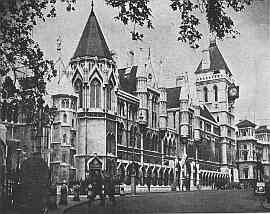What's Going On?—Some Facts and Puzzles about this Case
Cast of Characters
What Lipstadt's Book says about Irving
My Guesses as to Courtroom Battles, and their Outcomes
Will it Become, or is it Already, a Political Trial?
The first day. Tuesday 11th January 2000
|
|||||||||


